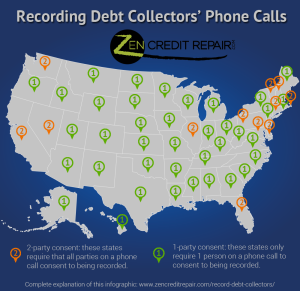As I’ve written before, I’m a big fan of New Year’s resolutions. Studies have shown that people who make resolutions are much more successful than people who don’t.
But goals like this aren’t one-offs; it’s not about getting it right the first time and never thinking about it again. How you readjust and get back on track is the most important part. It’s more of a dance than just being perfect and getting it right the first time. Mastering the art of goals requires you to recalibrate when you get off track.
Despite what you may think, Americans aren’t rushing out to spend all that money we’re saving on gasoline at the pump.
From ZeroHedge:
How can we explain this disconnect? It seems that consumers are saving some of the windfall cash from lower gasoline prices, with the personal savings rate increasing to 4.9% in December [my note: this personal savings rate they are talking about does NOT mean people are literally putting cash in savings accounts]. Another factor is that our data may be skewed by consumers with credit cards who are not as budget constrained as those who spend predominately with cash. Looking at a breakdown of spending by key sectors, we find a pick-up in sales at home improvement stores, restaurants and grocery stores, but a slowdown in lodging and furniture sales.
When you think about it, there are lots of ways to put money into savings:
You could deposit money into a savings account manually.
You could automate the process so that part of your paycheck is put into a savings account each month.
Et cetera.
Here’s my favorite way. (It could actually be thousands of different ways: it’s an open-ended invitation)
When people talk about identity theft, they usually mean one thing: someone getting your name, birthday, and social security number. With this information, they then apply for credit in your name. They keep the money, and you’re stuck with the bill (and the bad credit).
That’s the fastest way for identity thieves to make a quick buck, and your credit monitoring is your first line of defense. With credit monitoring, you’ll get an alert every time someone applies for credit in your name.
But there are other kinds of identity theft that don’t show up anywhere on your credit report and can be just as damaging. Here’s what you need to know:
Compound interest on debt is the strongest force in the universe
From ZeroHedge:
The most notable aspect was the $5.77 billion surge in revolving credit (e.g. credit cards) as Americans extended and pretended into the holidays – the biggest rise since April, and the second biggest monthly increase since the GFC…student and auto loans rose by the smallest amount since February 2012!
So student loans and auto loans are still increasing; they’re just growing at a slower rate.
I suspect this has something to do with the fact that so many loans have been made, they are reaching the saturation point. With student loan debt at all-time highs, there isn’t much room for more growth.
Still, lending standards are loose. If you have good financial habits and low debt, now is a great time to get a loan and move up the credit ladder.
It seems like every day we hear about another massive data breach. Here’s the latest.
From USA Today:
SAN FRANCISCO – As many as 80 million customers of the nation’s second-largest health insurance company, Anthem Inc., have had their account information stolen, the company said in a statement…The hackers gained access to Anthem’s computer system and got information including names, birthdays, medical IDs, Social Security numbers, street addresses, e-mail addresses and employment information, including income data, Swedish said.
In other words, everything a hacker would need to steal your identity. 80 million people–and that’s just the latest. At this point, is there anyone in the country who hasn’t had his information compromised?
If you set out to do the EXACT OPPOSITE of what these people did, you’d be in good shape.
From WaPo:
A decade ago, Comfort and Kofi were at the apex of an astonishing journey they had made from Ghana in 1997, when they had won a visa lottery to come to America. They did not know it at the time, but they were also at the midpoint in their odyssey from American Dream to American Nightmare.
Today, they struggle under nearly $1 million in debt that they will never be able to repay on the 3,292-square-foot, six-bedroom, red-brick Colonial they bought for $617,055 in 2005. The Boatengs have not made a mortgage payment in 2,322 days — more than six years — according to their most recent mortgage statement. Their plight illustrates how some of the people swallowed up by the easy credit era of the previous decade have yet to reemerge years later.
Calculator: How Much Home Can You Afford?
Here’s a calculator from CNN that shows you, supposedly, how much you can afford to pay for a house based on your income, debt, and interest rate (and therefore, credit score).
As always, take this with a grain of salt. Things change: the rule of thumb used to be that you could afford a house worth about 3 times your yearly income.

Click image for full size infographic
One of my Credit Commandments is to never talk to debt collectors. However, people are prone to ignore this commandment, especially if they’ve already crossed that bridge, and so the next Credit Commandment is to record your phone calls with debt collectors for your own protection.

